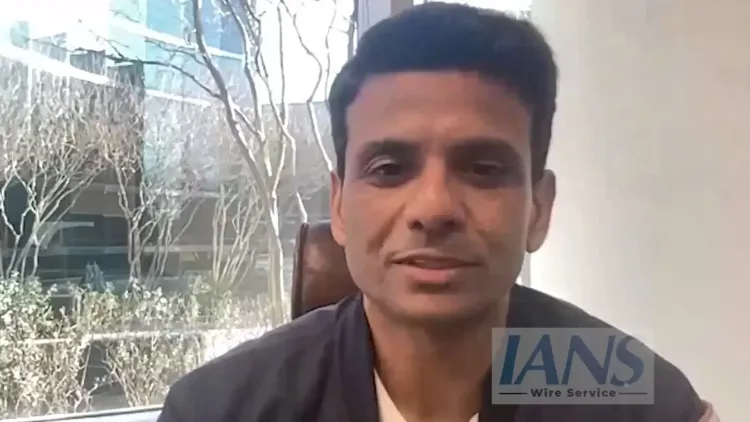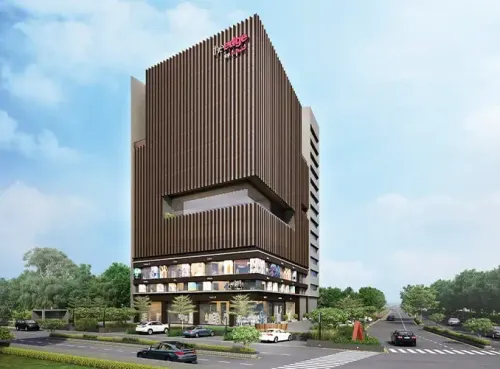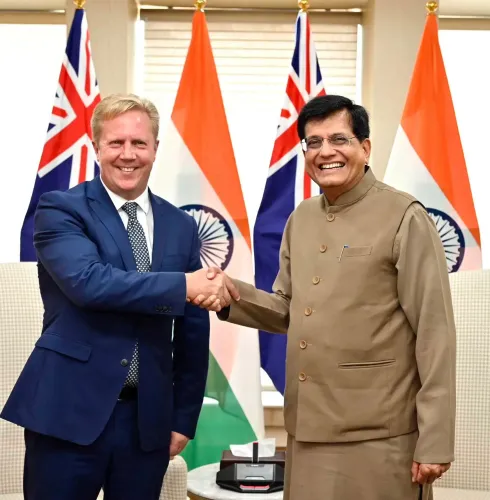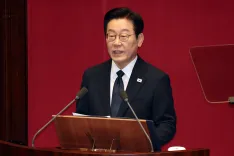Shubhanshu Shukla: Indian Space Startups Thriving Under Strong Government Policies (Exclusive IANS)

Synopsis
Key Takeaways
- India's space startups are experiencing unprecedented growth.
- Clear policies are guiding the sector's development.
- ISRO is respected globally for its cost-effective space missions.
- Significant demand for technology in the space sector is benefiting startups.
- Future missions aim for ambitious goals, including a Moon landing by 2040.
New Delhi, March 18 (NationPress) During a recent appearance on the American podcaster Lex Fridman's expansive show, Prime Minister Narendra Modi celebrated India's journey in the space startup realm. Indian Air Force (IAF) Group Captain Shubhanshu Shukla -- poised to be the first Indian to visit the International Space Station (ISS) shortly -- conveyed to IANS on Tuesday that the domestic startups within the space domain are experiencing growth at an unprecedented rate.
Shukla, originating from Lucknow, is set to make history as the first Indian astronaut to embark on a private mission to the orbiting laboratory. He commended the remarkable talent present in the nation that is powering the space startup economy.
The 39-year-old astronaut, selected as the pilot for Axiom Space’s Mission 4 (Ax-4) in collaboration with NASA and ISRO, also emphasized India's status as a spacefaring nation and praised the Indian Space Policy-2023 for enhancing the country's space capabilities.
Axiom Space is anticipated to launch the mission from the Kennedy Space Center in Florida, utilizing a SpaceX Dragon spacecraft, scheduled for May.
"The pace at which startups are emerging in India is unmatched," Shukla informed IANS during a discussion from Axiom Space's headquarters in Houston, Texas, stating that this trend is set to "intensify in the upcoming years due to the extraordinary talent we possess in this country."
He pointed out that, unlike in the past, the nation "now has a very clear vision and policy" guiding the space sector.
"The Indian Space Policy 2023 has established a concise framework outlining India's future aspirations, including programs, their expansions, and potentially landing on the Moon by 2040," Shukla elaborated.
Referring to the forthcoming space missions as "bold or monumental aspirations", he remarked that the pursuit of these goals is "facilitating an entire ecosystem".
He also highlighted the "significant demand for technology and expertise in the space arena" that is providing startups with the ideal foundation.
"I believe the formula is correct. We possess all the essential components, and they are aligning perfectly. This trend will continue to grow," Shukla expressed.
Notably, PM Modi, in his recent interview with Fridman, emphasized how his administration has opened the space sector to private enterprises, resulting in over 200 startups engaged in cutting-edge space technology.
The Prime Minister also praised the cost-effective nature of missions, particularly the Chandrayaan mission, which "cost less than what Hollywood invests in creating a single blockbuster film". He further stated that this frugal innovation "earns respect for Indian talent on a global scale".
According to Shukla, "India has always been a spacefaring nation", and it took time for the country to develop its own technology, launch vehicles, satellites, and ground stations for all facets of space missions.
He noted that ISRO is globally esteemed for executing complex missions at minimal costs.
"With the momentum we have established over the years, I believe we are poised to leap into the challenging domain of human spaceflight missions," he said, expressing strong confidence in the nation’s talent to achieve success.
During the Axiom space mission, lasting up to 14 days, the crew will engage in scientific experiments, outreach initiatives, and commercial endeavors in microgravity.
(Rachel V Thomas can be contacted at rachel.t@ians.in)









